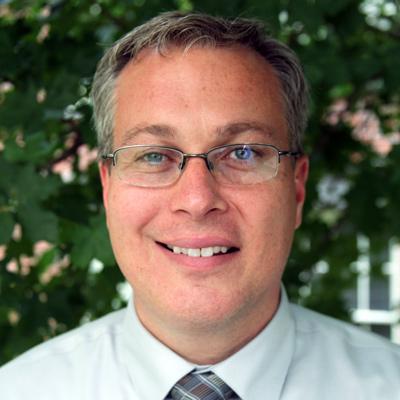On the very top of Dr. Matt Burns’ desk in room 109 of Hill Hall sits an impressive collection of what many researchers may not consider important: mugs. With logos ranging from Vanderbilt University to MU, this ceramic display reflects each university Burns has been invited to speak at. As admirable as it may seem, a recent study from researchers Victor Villarreal and Ileana Umaña may lead to the avid reader and father of two finding his collection growing.
A study published this summer titled “Intervention research productivity from 2005 to 2014: Faculty and university representation in school psychology journals” noted that Burns has been the most productive researcher in his field in the past decade.
The study calculates an “authorship credit score” by accounting for the number of articles the author has written and how much they contributed to each article. While over 95 percent of authors included in the study received authorship credit scores of less than one, Burns’ score was 5.21.
“It’s really exciting,” Burns said of the achievement. “It’s always nice to see that you’re being a productive researcher and that people are noticing your work.”
His research focuses on intervention in school psychology. In essence, he looks at methods that help children with learning disabilities in school, primarily with reading and math. He accomplishes this by collecting data from schools with his research team, the Center for Collaborative Solutions for Kids, Practice, and Policy, also known as SKiPP.
“We created [SKiPP] for a couple of reasons, but one of the main reasons was for teachers and parents to have a place to get an idea of what to try with kids,” said Burns, who is currently teaching a class on interventions this semester.
However, Villarreal and Umaña are not the only ones who have acknowledged Burns and his team. In a 2012 study titled “Scholarly Productivity and Impact of School Psychology Faculty in APA-Accredited Programs,” researchers looked at “the most productive scholars who have published in major psychology journals” from 2005 to 2009. Again, Burns placed first, with 40 total articles and a total authorship score of 18.88.
“We hired him as a superstar,” department chair T. Chris Riley-Tillman said.
As department chair for the educational, school & counseling psychology department, Riley-Tillman has worked closely with Burns for the past four years.
“There are rankings back from 2005 that put him as the most published researcher in school psychology,” Riley-Tillman said. “When we hired him, we hired somebody who, in our field, was viewed as one of the top, if not the top, overall researcher.”
Lisa Aguilar is a fifth-year PhD student who has worked with Burns through SKiPP. She explained that Burns encourages everyone on the team to get involved with writing and publishing. Although initially interested in behavioral psychology, she switched her focus to interventions after beginning work with him.
“As a graduate student that didn’t really know what I was doing, he’s amazing because he steered me in the direction [of academic interventions] that I hadn’t really thought of,” Aguilar said. “It’s not only the publications, but he has these personal stories that illustrate the work that he’s done over the last 10 years.”
Helen Young, a second-year PhD student and fellow SKiPP member, emphasized the passion Burns holds for their research.
“It’s funny, sitting in [a] research team or anything really [with Burns],” Young said. “He’ll be sitting in class, and we’ll discuss like, ‘Oh, I have a question about this.’ And he’ll be like, ‘You know what? That would be a great research question. We should do a study on that.’”
Burns expressed a desire to delve into the theoretical side of his work in future research. He cited his earlier work as a school psychologist as the source of his interest in interventions. While using different academic interventions with different students, he was always intrigued by why some succeeded and some didn’t. His start as a school psychologist is also what pushes him to do research that will help classrooms across the country.
“I want to help [teachers] by doing the study that will help them with the kid they struggle with the most,” Burns said. “That’s the kid I’m really passionate about. The kid that no one knows what the heck to do with. So we’re going to do the study that shows them, ‘Oh, this is how to figure out what that kid needs.’”
_Edited by Olivia Garrett | [email protected]_














